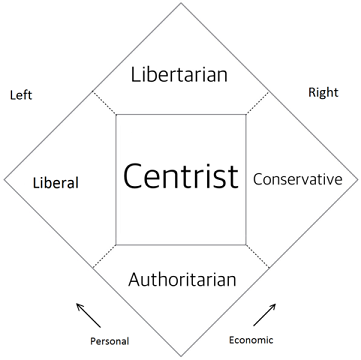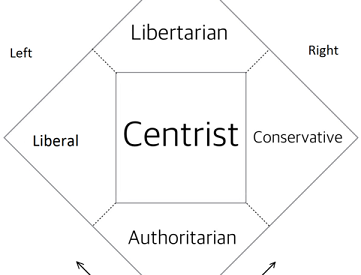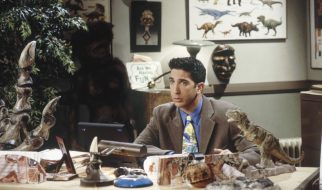A short rant about the language we use to talk about politics
 Is this accurate?
Is this accurate?
It drives me nuts how people in the United States use the words ?liberal? and ?conservative? to describe the political spectrum as if the two are complete opposites. I don?t think they are necessarily so. The proper opposite of liberal is illiberal, whereas the proper opposite of the word conservative is something along the lines of reformist.
To explore, let?s start off with the word I find easier to define: Conservative. You might associate conservative with concepts like a market economy and religiousness, but I don?t think those have to be core components of conservatism. To explain why, let?s look at the word?s origin.
Conservative comes from the Latin conservare, which can be translated as ?to keep intact? or ?to preserve or maintain.? There?s nothing about the word conservative that implies support for markets or religion. Conservative simply means you want to conserve the way things are. Makes sense, right?
Moving on to the other piece of the puzzle, liberal refers to an adherent of liberalism, the ideology born of the Enlightenment. I won?t bore you with a long-winded history or philosophy lesson (for which I am unqualified to lecture on anyway) but here is what you need to know: Liberalism, as formulated by its originators in the 17th and 18th centuries, emphasizes the liberty of individuals.
By these definitions, liberal and conservative are not mutually exclusive. If you currently live in a liberal society ? that is, one that upholds the ideals of liberalism ? and you want to keep things that way, one could reasonably describe you as simultaneously liberal and conservative without any contradiction.
Using those same definitions, you can also see how strange it is to use conservative as the opposite of liberal, and vice-versa. The proper opposite of conservative is someone who embraces changing the status quo. I don?t think there?s even a word for that in English. Reformist or progressive are the closest things I can think of, but they don?t strike me as quite the right words. If anyone knows a better one, please tell me!
Similarly, the proper opposite of a liberal is someone who rejects the tenets of liberalism. There are numerous -isms opposed to liberalism, and you?ve probably heard of most of them. To name just a few, there is monarchism, totalitarianism, fascism, socialism, communism, and so on. We can describe these philosophies or their adherents as illiberal, although one should recognize that word often carries negative connotations.
I know this all sounds incredibly nitpicky, but can we please be more careful in our use of the words liberal and conservative? It?s always difficult to argue for linguistic prescription since language doesn?t arise through executive fiat, but I still feel the way I use liberal and conservative is more consistent with the words? origins. In the interest of conserving their meanings, I hope you will consider not using them so liberally.
Inspired by Friedrich Hayek?s ?Why I Am Not a Conservative?
If you liked this piece, you might also enjoy its ?spiritual successor? about liberals vs. progressives, or my theory on why populism is on the rise in the West. My latest essays can be found here.


